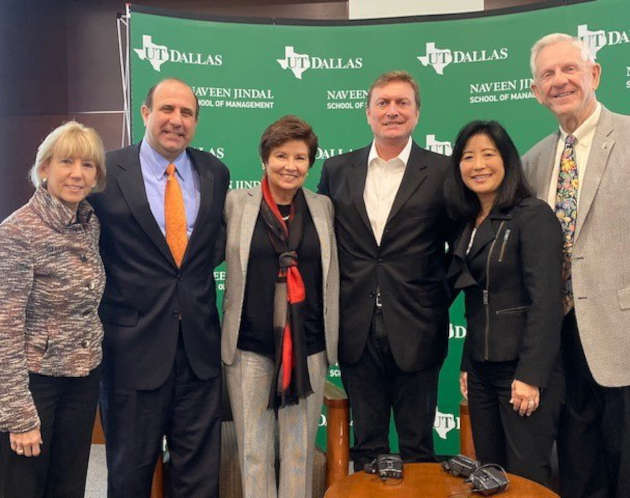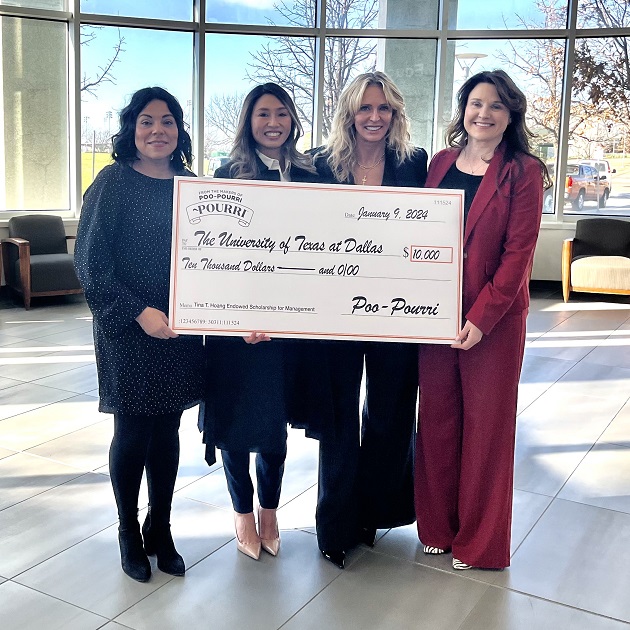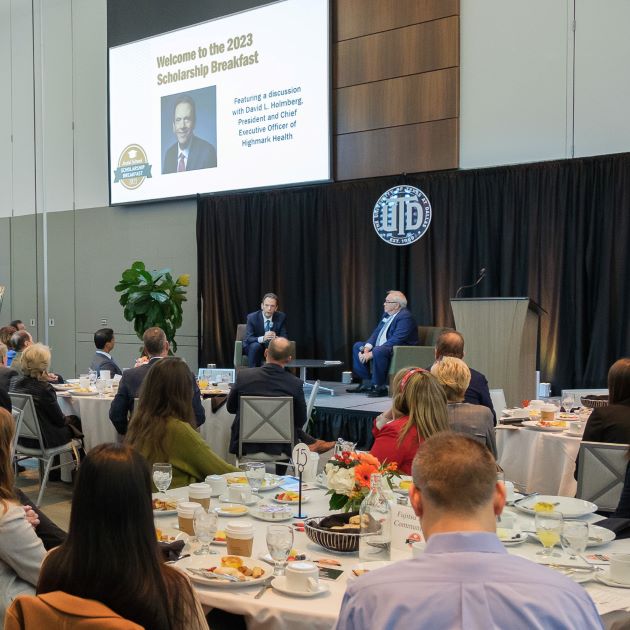
Building an educated, well-trained workforce is important to any company’s success, but the dizzying pace of technological advances today complicates that objective.
How does a company train its future leaders when it does not know what new technologies are to come? That was the topic of discussion at “The Future of Work,” an Oct. 29 breakfast panel discussion at the Naveen Jindal School of Management hosted by the Institute for Excellence in Corporate Governance.
About 100 people attended the event, according to Sharon Foster, IECG program manager.
The panel was assembled by Sandra Beach Lin, a director at American Electric Power, WESCO, PolyOne and Interface Biologics, and Stephen Konstans, senior vice president, Pearson Partners International. Both are members of the institute’s advisory board.
“The future of work is a complex and very encompassing concept,” said Konstans, who moderated the discussion and whose father, the late Dr. Constantine (Connie) Konstans, founded the institute and was a longtime JSOM professor. “Our panelists, with perspectives from executive to board member to consultant, were able to give us unique and valuable insights.”
Panelists were:
- Sandi Karrmann, executive vice president and chief human resource officer, Tenet Healthcare Corporation, and chief human resource officer and head of support services for Tenet’s ambulatory sector, United Surgical Partners International;
- Kevin Knowles, principal, Deloitte Consulting LLP, who leads the U.S. Human Capital practice for digital enterprise transformation; and
- Sara Martinez Tucker, a board of trustee member for the University of Notre Dame, and former chairman of The University of Texas System Board of Regents, former undersecretary at the U.S. Department of Education, and former CEO of the National Math and Science Initiative.
Dennis McCuistion, executive director of IECG, which provides educational programs focused on future trends, board dynamics, public and private company governance, and nonprofit board education, introduced the program.
While it is a given that technology will continue to transform the way business is done in the future, McCuistion said, it is not always easy to prepare for what is to come.
“Today, speed is the name of the game,” Knowles said. “We have to consider how that impacts work and workers, and we have to decide whether specific tasks can be done by a human, or whether it should be automated.”
In her human resources role, Karrmann said, it does not necessarily come down to deciding if a job should be done by a human or technology, such as a robot. “It’s about marrying the two to create the best outcomes,” she said.
Keeping up to date on new technologies is an important responsibility of a company’s board members, Tucker said. “One thing I do is ask myself: Have I improved my digital currency? Is it up to date? All corporate boards should have a business transformation and technology committee, yet only one of my companies has one.”
Asking why a job is done a specific way is also important, Karrmann said. “In large companies, people tend to say, ‘Well, we’ve always done it this way.’ Asking why creates a beneficial feeling of uncomfortableness.”
While the introduction of new technologies happens at lightning speed, the same cannot be said of company policies to address their use, Tucker said. Determining who owns certain data, or how it can be used, takes time and diligence.
But even then, speed is a factor.
“Individuals adapt faster,” Knowles said, “business is right behind them, and government policy lags way behind.”





